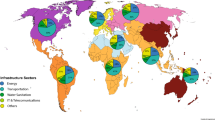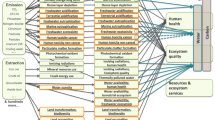Abstract
The use of computer-based simulation models has a long history in areas such as environmental planning and policy-making, and particularly in water management. Policy making in these areas is often characterized by inherent conflict among diverse stakeholders with divergent interests. Although simulation models have been shown to be helpful for such problems, they are typically under the control of a technical analyst or governmental agency and are not available to negotiators in real time. Recent trends in computer technology and user expectations raise the possibility of real-time, user-controlled models for supporting negotiation. But is such accessibility likely to be helpful? This study used a "compressed" longitudinal experiment to investigate the impacts of different scenarios of accessibility of computer-based simulation models. The task was based on a real-life problem in Colorado River water management. Results revealed no significant differences among conditions for either solution quality or satisfaction. These results suggest that the common notion of "more is better" may be inappropriate, and resources for improving computer support of negotiation might best be focused elsewhere.
Similar content being viewed by others
References
Andrews, C.J. (1991) “Building Consensus on a Shoestring: The Efficacy of Packaged Models in Joint Fact-Finding,” Conference on Computers in Urban Planning and Management, Oxford, England, 371–386.
Bazerman, M.H., Mannix, E., Sondak, H., and L. Thompson (1990) “Negotiator Behavior and Decision Processes in Dyads, Groups, and Markets.” in: J. S. Carroll (ed.), Applied Social Psychology and Organizational Settings. Hillsdale, NJ: Lawrence Erlbaum Associates.
Bui, T., and C. Loebbecke (1996) “Supporting Cognitive Feedback Using System Dynamics: A Demand Model of the Global System of Mobile Telecommunication,” Decision Support Systems 17(2), 83–98.
Dennis, A.(1996). “You Can Lead a Group to Water, But You Can't Make it Think,” MIS Quarterly 20(4), 433–458.
Dennis, A., and R.B. Gallupe (1993) “A History of Group Support Systems Empirical Research: Lessons Learned and Future Direction.” in: L. Jessup and J. Valacich (eds.), Group Support Systems: New Perspectives. New York: Macmillan.
Dutton, W.H., and K.L. Kraemer (1985) Modeling as Negotiating: The Political Dynamics of Computer Models in the Policy Process. Norwood, NJ: Ablex Publishing Corp.
Fedra, K., E. Weigkricht, and L. Winkelbauer (1986) “A Hybrid Approach to Information and Decision Support Systems: Hazardous Substances and Industrial Risk Management,” in: IFA C Proceedings of the Conference on Economy and Artificial Intelligence, Aix-en-Provence, France.
Gouran, D.S., C. Brown, and D.R. Henry (1978) Behavioral Correlates of Perceptions of Quality in Decision-Making Discussions,” Communication Monographs 45, 51–63.
Green, S.G., and T.D. Taber (1980) “The Effects of Three Social Decision Schemes on Decision Group Process”, Organizational Behavior and Human Performance 25, 97–106.
Jelassi, M.T., and A. Foroughi (1989) “Negotiation Support Systems: An Overview of Design Issues and Existing Software,” Decision Support Systems 5(2), 167–18 1.
Johnson, L.E. (1990) “Computer-Aided Planning for Multiple-Purpose Reservoir Operations Policies,” AWRA Water Resources Bulletin 26, 299–311.
Johnson, L.E. (1986) “Water Resource Management Decision Support Systems,” ASCE Journal of Water Resources Planning and Management 112, 308–325.
Kanji, G.K. (1993) 100 Statistical Tests. London: Sage Publications.
Kraemer, K.L. (1985) “Modeling as Negotiating: The Political Dynamics of Computer Models in Policy Making” in Advances in Information Processing in Organizations, Vol. 2. Greenwich, CT: JAI Press.
Lewis, L.F., and M.F. Shakun (1996) “Using a Group Support System to Implement Evolutionary System Design,” Group Decision and Negotiation 5, 319–337.
Lim, L., and I. Benbasat (1992- 93) “A Theoretical Perspective of Negotiation Support Systems,” Journal of Management Information Systems 9(3), 27–44.
Loucks, D.P., J. Kindler, and K. Fedra (1985) “Interactive Water Resources Modeling and Model Use: An Overview,” Water Resources Research 21(2), 95–102.
Mays, L.M. (ed.) (1996) Water Resources Handbook. New York: McGraw-Hill.
Nunamaker, J.F., Jr., A.R. Dennis, J.S. Valacich, D.R. Vogel, and J.F. George (1991) “Electronic Meeting Systems to Support Group Work,” Communications of the ACM 34(7), 40–61.
Nyhart, J.D., and D.K. Samarasan (1989) “The Elements of Negotiation Management,” Negotiation Journal, 43–62.
Palmer, R.N., A.M. Keyes, and S. Fisher (1993) “Empowering Stakeholders Through Simulation in Water Resources Planning,” in: K. Hon (ed.), Water Management in the 90's: A Time for Innovation. New York: ASCE.
Reisner, M. (1987) Cadillac Desert: The American West and its Disappearing Water. Penguin Books.
Reitsma, R., I. Zigurs, C. Lewis, V. Wilson, and A. Sloane (1996) “Experiment with Simulation Models in Water-Resources Negotiations,” Journal of Water Resources Planning and Management Jan/Feb., 64–70.
Samarasan, D.K. (1988) “Collaborative Modeling and Negotiation,” in; R. Allen (ed.), Proceedings of the Conference on Information Systems. New York: ACM Press.
Sengupta, K., and D. Te'eni (1993) “Cognitive Feedback in GDSS: Improving Control and Convergence,” MIS Quarterly 17(1), 87–113.
Stevens, C.A., and P.N. Finlay (1996) “A Research Framework for Group Support Systems,” Group Decision and Negotiation 5, 521–543.
Strzepek, K.M., and S.C. Chapra (1990) “Do the Right Thing,” Civil Engineering.
Thompson, L. (1990) “Negotiation Behavior and Outcomes: Empirical Evidence and Theoretical Issues,” Psychological Bulletin 108(3), 515–532.
Thompson, L., and R. Hastie (1990) “Social Perception in Negotiation,” Organizational Behavior and Human Decision Processes 47, 98–123.
U.S. Bureau of Reclamation (1980) Updating the Hoover Dam Documents; 1978. United States Department of the Interior, Bureau of Reclamation, Denver, Colorado.
Winter, F.W. (1985) “An Application of Computerized Decision Tree Models in Management Union Bargaining,” Interfaces 15, 74–80.
Zigurs, I., G. DeSanctis, and J. Billingsley (1991) “Adoption Patterns and Attitudinal Development in Computer-Supported Meetings: An Exploratory Study with SAMM,” Journal of Management Information Systems 7(4), 51–70.
Zigurs, I., E.V. Wilson, A. Sloane, R. Reitsma, and C. Lewis (1994) “Simulation Models and Group Negotiation: Problems of Task Understanding and Computer Support,” in: Proceedings of the Twenty-Seventh Annual Hawaii International Conference on System Sciences, Maui, Hawaii, 306–315.
Author information
Authors and Affiliations
Rights and permissions
About this article
Cite this article
Zigurs, I., Reitsma, R., Lewis, C. et al. Accessibility of Computer-based Simulation Models in Inherently Conflict-Laden Negotiations. Group Decision and Negotiation 8, 511–533 (1999). https://doi.org/10.1023/A:1008627224343
Published:
Issue Date:
DOI: https://doi.org/10.1023/A:1008627224343




